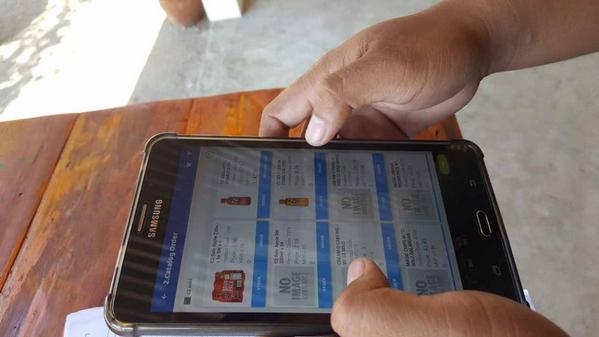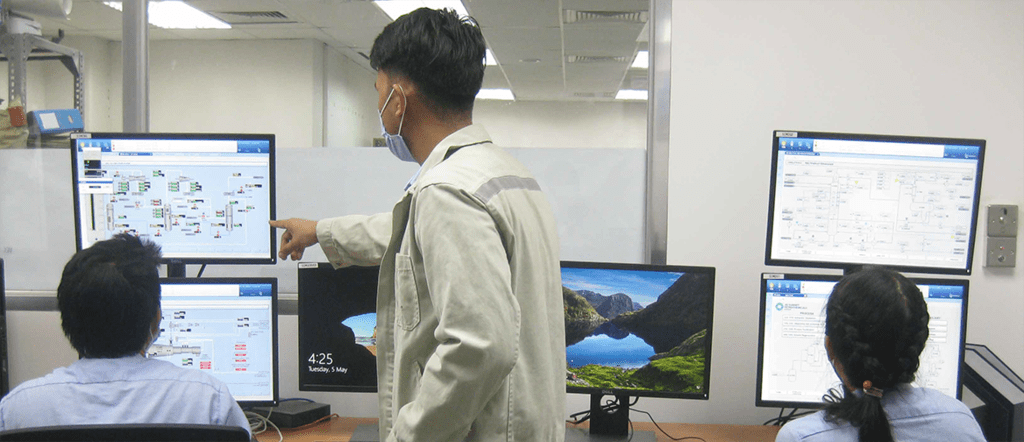Among these products were an end-to-end hotel management portal for Robinsons Hotels & Resorts; digital sellers and buyers’ portals for Robinsons Land Corporation’s Residential Division; a digital employee loan platform for Robinsons Bank; and order management platforms for both Global Exports and Agro-Industrial Group of Universal Robina Corporation. Many other projects across the conglomerate are in various stages of completion, enabled by the DTO.
A key milestone was the Launchbox, a 5-month training program that teaches participants from various business units how to launch innovative digital products, from the discovery phase all the way to product delivery. The participants not only learn new skills but also bring a product to market at the end of the process. Among the products are a homeowner management platform to improve homeowner experience in Robinsons Land residential developments as well as a QR payment product for Robinsons Bank.
“As soon as the orders are confirmed and clicked on the tablet, they are transmitted to enter the system immediately, ensuring fast and accurate delivery of products—in some cases as soon as the next day.”
The implementation of Sales Force Automation has been instrumental in driving our vision of leapfrogging our distributor capabilities through digitization. This allowed our distributors to reach out effectively to the market and cover more stores in the most efficient manner. With the app, salesmen no longer have to pitch a long list of products as they can just show store owners a comprehensive product guide on a tablet, including the latest URC merchandise and promotions. Store owners can also check that the items he or she wants are correctly entered in the ordering section of the app. As soon as the orders are confirmed and clicked on the tablet, they are transmitted to enter the system immediately, ensuring fast and accurate delivery of products—in some cases as soon as the next day.

Seamless customer digital experience is key to maintain CEB’s position as the country’s best low-cost carrier. In line with this, CEB has initiated the Agility Platform project, the heart of digital transformation which focuses on developing software applications through microservices – suites of independently deployable services via the Agility framework. The initiative aims to significantly enhance the organization’s online presence to fully embrace customers and their journeys such as from flight searches and booking, to arrivals. The Agility platform using microservices simplifies everything to provide airline travelers the best digital experience.
CEB also started implementing various Robotic Process Automation (RPA) initiatives in 2019, including modules that automate form filling and report generation. The success that RPA enjoyed served as a springboard for the development of an RPA System that allowed employees to create, run, and manage their respective high-volume task and workflow automations.
The use of RPA technology has considerably enhanced work quality and cycle times across the organization. It has allowed CEB to maintain maximum possession, control and visibility of its businesses and interests, while realizing significant cost savings in the process. Moreover, RPA has empowered everyJuan, freeing them up from repetitive tasks for critical ones. With RPA, repetitive and tedious tasks are now a thing of the past.

Interactive directory to help shoppers navigate with ease
Buyers Portal for smoother resident transactions
Sellers Portal to aid agents with accurate information
Hotel Property Management
System (PMS) to provide guests
with a seamless customer experience throughout their stay
One of the first tools developed was for Robinsons Malls. One pain point of customers when they enter a mall is when they can’t find a store. So, the digital transformation team made an interactive directory that helps shoppers navigate RLC’s malls, finding shops, finding restaurants, mall products, and services. After successful tests in select malls, the interactive directories are now being rolled out nationwide.
For RLC’s Residential Division, two projects promise to simplify things for both the sales agents and their clients. First is the Buyers Portal which helps automate RLC buyers’ most common interactions. The Buyers Portal allows them to view easily and update their account information, manage their payments, view and download the latest statement of accounts, and log requests and inquiries directly. Also, through the Buyers Portal, customers/buyers can electronically log their queries and somebody will reply. And because they’re registered in the Buyers Portal, RLC’s sales team knows who they are and will know how to answer customers/buyers’ concerns.
On the opposite side of the fence, sales agents’ lives have gotten simpler with the Sellers Portal. For sales agents, when they are out in the field and trying to sell a unit, their biggest issue is that they cannot memorize all the details of the 4,000 condo units we are selling. They have to carry a lot of brochures, papers, price lists, and payment terms. Now, it’s all available through the Sellers Portal. Aside from providing accurate information at the touch of a button, the Sellers Portal enables sales team members to see which units are available, in real time. If someone sells a particular unit, another seller won’t make the mistake of selling it also, because the portal immediately updates if a unit has been sold.
The fourth project developed by RLC is a Hotel Property Management System (PMS), another tool meant to give hotel guests a perfect customer experience, it’s an end-to-end solution – from the time a customer books to the time he checks out. The PMS is designed to help staff provide a seamless experience for guests while managing the hotel business effectively. For the returning guests, the front desk team will know who the guest is and his preferences. Before it was more manual. This makes work easier for the hotel staff.
JGSPG constantly drives digital transformation initiatives that enable business growth and operational improvements, using technology to help address gaps in business processes. More than just IT-related projects, various departments within the group have been undertaking respective digital transformation initiatives as appropriate for their areas. Some examples of projects undertaken and/or completed in 2019 are described below.
Computer-based training systems to impart process understanding and operation skills
Digitalization of the Incident Reporting System
Vendor Invoice Management System
We are also the first petrochemical company in South East Asia to implement full functionalities of S/4 HANA.


RBank launched a fully digital payroll loan application process for the employees of its payroll corporate customers. With the digital payroll loan process, borrowers can now fill up a web-based digital form accessible in their own devices. The Bank also introduced an alternative banking channel through agency banking. BSP approved RBank to pilot in five (5) stores to serve as bank agents. With agency banking, RBank customers can now go to authorized third party agents and perform banking activities such as cash deposit, cash withdrawal, bills payment, and funds transfer. More banking agents will be introduced in 2020. Furthermore, the Bank introduced three (3) new 24-hour “hybrid” branches that provide both traditional with digital banking channels that provide banking services even when after bank business hours. These digital banking services include cash acceptance, account opening, personal online banking, and bills payment.
In 2019, Robinsons Bank redefined its marketing efforts by strengthening its online presence in the digital space, utilizing high reach platforms like Facebook and Waze, establishing relevance through Knowledge Bank, and owning organic search results through Search Engine Optimization. In January, Robinsons Bank launched a pilot campaign for Simple Savings Online, its first foray into digital account opening. With the success of the pilot campaign, a more expanded campaign was relaunched with expanded platforms and with optimized targets, resulting to higher conversion rates with lower costs.
Various robotic process automations were also implemented across areas of the Bank to improve operational efficiency and increase capacity to handle greater transaction volume. Some initiatives include a robot that automates the monitoring and reporting of ATM status nationwide, a robot that helps in the processing of ATM cards to newly opened accounts, and a robot that automates several manual credit validations for auto loans.